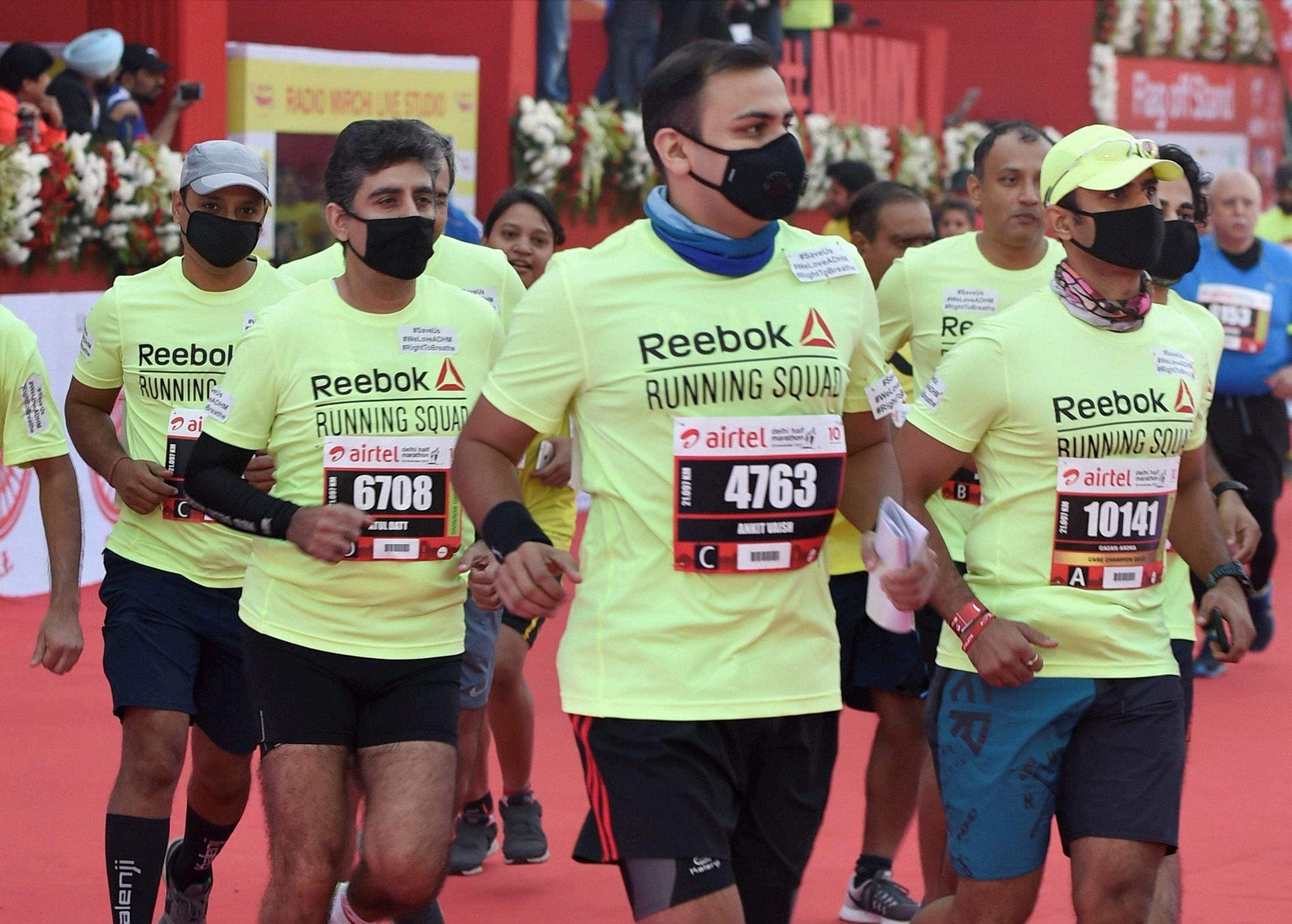
On Sunday, December 9, New Delhi witnessed the 3rd edition of the Super Sikh Run, one of the most prestigious half marathons in the country. The half marathon, which started from the Rakabganj Gurudwara to the Jawaharlal Nehru Stadium, saw a total of 7,250 runners participating.
The organisers claimed that the event was a success, and they even announced the date for next year’s event. But amidst much fervour, one runner had something completely different to say.
Karlygash Omurbayeva, a professional runner from Kazakhstan says that Delhi’s bad air hindered her running experience. “You can’t avoid it, so you have to live with it”, she says.
From the city of Almaty, Karlygash has run in various cities all over the world including New York, Berlin and Dubai, but she says running in Delhi has been the worst experience for her. “Even in Dubai, where there is extreme heat and frequent sandstorms, it is easier to run than here in Delhi”, she says.
Delhi currently is experiencing its worst weather, with the current AQI levels indicating that the PM2.5 levels in the city is well over 400, thus being in the “severe-plus-emergency” category. This weather is especially not conducive for people who run regularly.
Dr Raj Mukherjee, a chest specialist says “While running people breathe in and breathe out more heavily. This happens because the body experiences severe exertion, and it needs more air, and hence the respiratory system becomes more active”
“So, runners breathe in more of this polluted air in Delhi. This harms their body more than the average human being”, he adds.
Delhi, on the other hand is the hub of marathons and half marathons in the country. Events like the Delhi Half Marathon, Super Sikh Run and the Delhi Pinkathon are considered the most prestigious running events in the country, with thousands of people coming in from various other cities. There are more than 15,000 registered runners in the city with various running groups, according to founder of the RunXtreme Group, Tarun Walecha. So the bad air in the city does affect a lot of people.
The Delhi Half Marathon, probably the most prestigious running event in the country, was in danger from being cancelled this time due to the pollution. The Indian Medical Association had urged to postpone the event to when the pollution levels would come down. According to standards, the maximum PM2.5 level limit that a runner can sustain is 150, but the levels were well above 300 during the month of October, when the event was supposed to happen.
In the event, which saw more than 35,000 people participating, many people were seen wearing masks and running.
Various high profile personalities like Anil Ambani and Rahul Bose were a regular feature at the Delhi Half Marathon till last year. However, they were surprisingly missing from this year’s events. The organisers, Procam International refused to comment on this, and though Patriot reached out to both Ambani and Bose, they were unavailable for comment.
Supermodel and India’s most noted marathon runner Milind Soman, the founder and ambassador of Pinkathon says, “Air pollution is a recurring problem in most cities in the world, but it is more visible in Delhi”.
“I have been running in Delhi for years, and yes, the situation has declined in the past couple of years”, he says, adding that noise pollution too is a major deterrent for running in the capital.
“I’ve lived & run in the following cities: New York, Houston, Oslo and Sarajevo and done running trips in Scandinavia & Luxembourg… in all of these places the pollution is considerably lower or not-noticeable. But in Delhi it is a major problem”, says professional American runner Julie Eriksen, who has been staying in Delhi for the last 1.5 years.
“Last year I ran on a treadmill for three months of training, that was torture as I could not go out in the pollution for training. Running outdoors here on extreme days is like smoking cigarettes as I’m running”, she adds.
However, Tarun Walecha feels that the situation in the city is improving for runners. “Pollution has no doubt been bad for the last three years, but compared to the last two years, the situation this time is much better”, he says.
“Running in fresh air is very important, but nowhere in the country do we have it. So we have to deal with it”, concludes Walecha.
Five quiet corners across Delhi-NCR where February evenings slow the city down, letting breeze, fading…
A solo exhibition by Anjali Mittal exploring emotion, memory and intuition through layered blue-hued paintings
The incident occurred on Saturday near Bakhtawarpur. A senior police officer said a team rushed…
V K Saxena approves 20 per cent reservation, age relaxation, and test exemption for ex-Agniveers…
The fair at Gandhi Darshan brings together emerging and senior artists, showcasing over 200 artworks…
State Names Authority approves renaming of two metro stations and modifies seven others, aligning station…